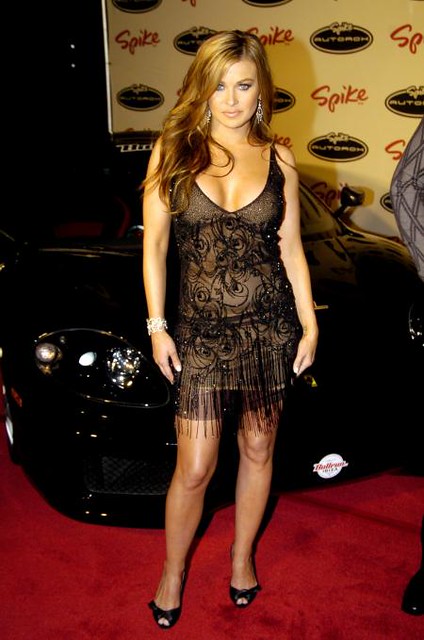Many a performer has changed his or her name to benefit their careers. A pseudonym is a fictitious name used by a person, or less often, a group. I have been looking at some pseudonyms here whether they are known as pen names (writers), noms de guerre, (resistance fighters or terrorists) or the stage names, for actors, musicians and other performers.
Why use a pseudonym? Sometimes it is done to mask a person's ethnic backgrounds in order to avoid prejudices, though I would hope that is less the case today than it was a hundred years ago. It can also be to create a personae. It can be simply to differentiate yourself from other performers with the same or similar names.
Just a few musician pseudonyms of popular musicians:

 Bob Dylan
Bob Dylan's real is Robert Zimmerman. Around 1960, Zimmerman began introducing himself as "Bob Dylan," a name influenced by the poet Dylan Thomas. He has certainly built a life story for "Bob Dylan" that is part fact, part fiction. In a 2004 CBS interview, Bob said "You're born, you know, the wrong names, wrong parents. I mean, that happens. You call yourself what you want to call yourself. This is the land of the free."

 David Bowie
David Bowie was born David Jones and he changed his name to avoid confusion with David (Davy) Jones of the pop band The Monkees. It's hard to believe that anyone would ever have confused Bowie and Davy Jones, but...
Bowie's debut single, "Liza Jane", was credited to Davie Jones and the King Bees. It was flop and after several bands and singles, he decided to use the name David Bowie. The name came from the American soldier Jim Bowie and the "Bowie knife" he popularized.


Wendy Carlos, the American composer and electronic musician, was born as Walter Carlos and first came to notice in the late 1960s with
recordings made on the Moog synthesizer, including the
soundtrack for Stanley Kubrick's film A Clockwork Orange.
Carlos underwent sex reassignment surgery in 1972 and was first credited as "Wendy" on
Switched-On Brandenburgs in 1979.
The popular singer of the 1970s,
Cat Stevens, was born as Stephen Demetre Georgiou. But he changed his name for religious reasons and took a long break from performing as
Yusuf Islam.
Eminem just took the initials of his real name, Marshall Mathers, and rewrote it phonetically.
 |
| Katy |
Katy Perry chose to not use her real name, Katy Hudson, to avoid confusion with another famous Hudson she shares a name with - the actress Kate Hudson.
Singer Elvis Costello went for the King's name and a new surname rather than Declan Patrick McManus.
Musicians and singers can use pseudonyms to allow artists to collaborate with artists on other labels while avoiding the need to gain permission from their own labels.
Jerry Samuels made songs under the pseudonym Napoleon XIV and Beatles singer-guitarist George Harrison played guitar on Cream's song "Badge" using a pseudonym.
Pseudonyms are also used as stage names in bands: Tracii Guns in LA Guns, Axl Rose and Slash in Guns N' Roses, Mick Mars in Mötley Crüe, or C.C. Deville in Poison.
Brian Hugh Warner is more commonly known as Marilyn Manson, the incongrunt merging of Marilyn from Marilyn Monroe and Manson from convicted serial killer Charles Manson.
Ross Bagdasarian, Sr. is the creator of Alvin and the Chipmunks, but wrote original songs, arranged, and produced those records under his real name, but when he performed on them he was listed as David Seville. (He also wrote songs using the name Skipper Adams.)
Danish pop pianist Bent Fabric, whose full name is Bent Fabricius-Bjerre, wrote his biggest instrumental hit "Alley Cat" under the name Frank Bjorn.
A rather unique use if by the musician Prince who used an unpronounceable "Love Symbol" as a pseudonym. Interestingly, "Prince" is his actual first name and not a stage name. He wrote the song "Sugar Walls" for Sheena Easton under the alias "Alexander Nevermind" and "Manic Monday" for The Bangles as "Christopher Tracy" and he produced albums early in his career as "Jamie Starr".
The idea of being "too ethnic" hit a number of Italian-American singers have used stage names: Dean Martin (born Dino Paul Crocetti), Connie Francis (born Concetta Franconero), Frankie Valli (born Francesco Castelluccio), Tony Bennett (born Anthony Benedetto), and Lady Gaga (born Stefani Germanotta).
Tupac Shakur used the stage name 2Pac, but was born either Lesane Parish Crooks or Parish Lesane Crooks. He legally changed his name early on to Tupac Amaru Shakur.
Elton John used the name professionally before he legally adopted it in 1972 as a change from his given name of Reginald Kenneth Dwight.
Like jazz musicians earlier, many hip-hop and rap artist prefer to use pseudonyms. Iggy Azalea comes from her dog name, Iggy, and her home street in Mullumbimby, Azalea street.
Confusingly, Diddy was previously known at various times as Puffy, P. Diddy, and Puff Daddy. He announced on Twitter that Sean Combs will no longer be answering to Puff Daddy, Puffy, P. Diddy, Diddy or any other names but "Love a.k.a. Brother Love'." For now...
Punk music singers and band members often replaced their real names with punkier names: Sid Vicious (real name John Simon Ritchie) of the late 1970s band Sex Pistols is a good example.
Punk rock band The Ramones also had every member take the last name of Ramone - though I don't think that is a punkier name, you might have thought they were a family.
 Jazz musicians often take on nicknames
Jazz musicians often take on nicknames that are not always true pseudonyms, but names they are known by to the public. Billie Holiday was known as "Lady Day." Charlie Parker was "Bird" for "Yardbird."
Others include: "Fatha" Earl Hines; "High Priest of Bop," Thelonious Monk; "High Priestess of Soul," Nina Simone; "Newk," Sonny Rollins, and many musicians with the nicknames "Red" and "Sonny."















.jpg/1280px-Hollywood_Sign_(Zuschnitt).jpg)








